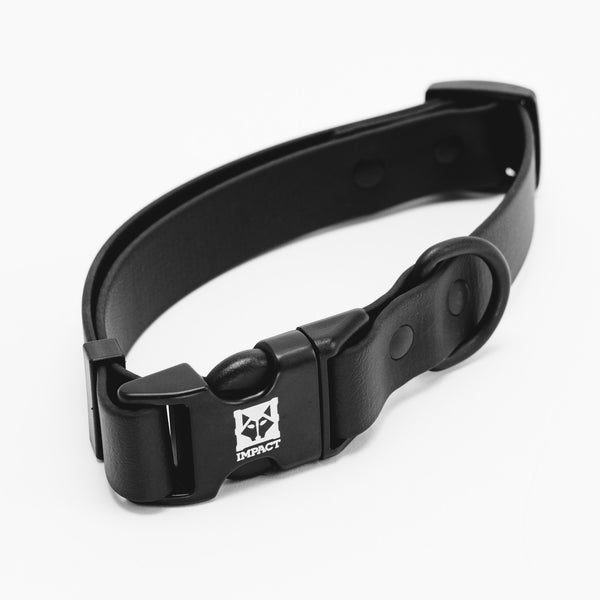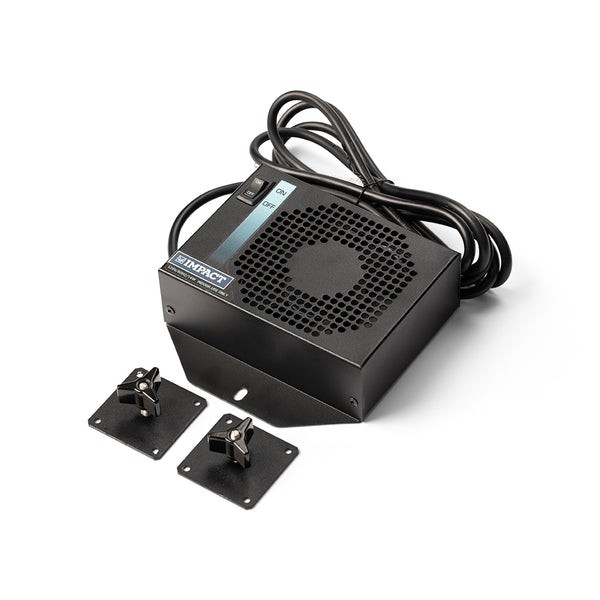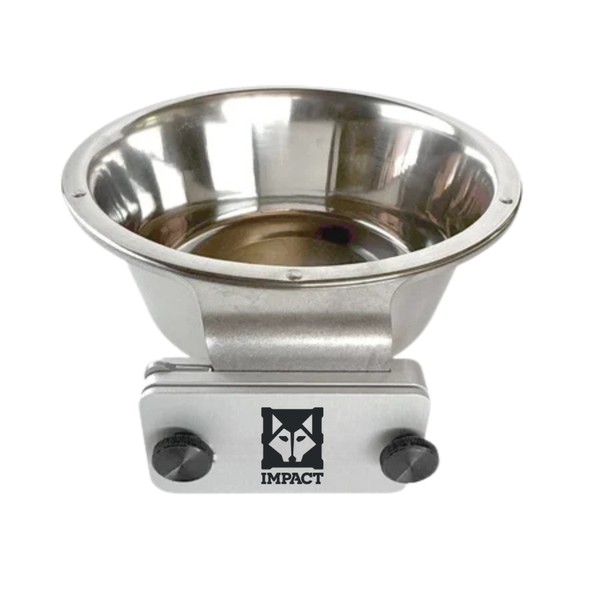The German Shepherd is famous for its wit, loyalty, and the fact that they are pretty versatile. According to Horse and Hound, German Shepherds take the lead in being super brave and intelligent. They prove their versatility whether they are part of the military or police or even as a service dog. And due to their courage, confidence, adaptability, protective instincts, and trainability, they secure their place in the top 10. But despite their perfection, even this breed has certain health issues that dog parents should be aware of.
Have you been planning to bring one home but are not sure about their illnesses and how to take care of them? No worries, as this blog is here to fulfill the purpose of guiding you about the list of health issues they are vulnerable to, and as a dedicated dog parent, how are you supposed to make sure that this furry fellow lives a long and healthy life?
What are Some Common Health Issues In German Shepherd Dogs?
Let’s shed light on some common health issues a German Shepherd has:
Hip and Elbow Dysplasia
Hip and elbow dysplasia is considered a hereditary condition, where your dog’s hip or elbow joint fails to develop in the way it should. This results in pain, arthritis, and instability.
In hip dysplasia, the ball-and-socket joint of the hip is affected. Meanwhile, in elbow dysplasia, abnormal development of the elbow joint occurs. As far as the symptoms are concerned, you will see your future furry friend limping, struggling while rising, and simply displaying hesitation from doing exercise as their hip and elbow won’t cooperate.
Yes, this can be diagnosed, which involves X-rays to examine their joints. As a part of treatment, your vet might suggest you manage their weight, schedule physical therapy, and even surgery if the case is quite severe.
It’s suggested that you adopt a dog from a responsible breeder. Why? According to the Kennel Club, they screen their dogs for elbow and hip dysplasia through genuine organizations such as the British Veterinary Association and the Kennel Club Hip Dysplasia Scheme, which analyses your dog’s X-rays to check into any kind of abnormalities present in their hip joints.
Degenerative Myelopathy
Next in line is Degenerative Myelopathy. What is it? This is a neurological disease that is progressive in nature, impacting the spinal cord and resulting in hind limb weakness and paralysis. Furthermore, neurological diseases appear more in older dogs; however, if you still want to give yourself peace of mind, then you can move ahead with genetic testing, as that helps in letting you know whether your selected dog is born with the gene linked with this disease or not.
Unfortunately, there is no solid cure, but you can support your furry companion through physical therapy and devices designed for this deed to make their lives comparatively better.
Bloating
Gastric Dilation-Volvulus or GDV, known as bloating in simple terms, is a life-threatening condition. How? Here, your German Shepherd’s stomach gets completely filled with gas and twists, cutting the delivery of blood supply. In this case, the dog breeds with larger and deeper chests are at higher risk. Will you know when their stomach is undergoing this issue? Yes, you will get to know through symptoms such as when they are retching, moving around restlessly, having a distended abdomen, and beginning to breathe rapidly. Please don’t take this bloating for granted, as you have to immediately take your dog to your vet, who can guide you on how to make it easier for your dog to breathe and digest meals. For instance, include smaller meals and feed them more frequently, avoid exercise after consuming food, and consider going for surgery for a proper blood supply.
Exocrine Pancreatic Insufficiency
In Exocrine Pancreatic Insufficiency, your dog’s pancreas is not able to produce the required amounts of enzymes responsible for digestion. This results in the malabsorption of necessary nutrients. What about the symptoms? Then, they include weight loss, more hunger, and unpleasant-smelling stools. Here, the diagnosis includes running blood tests to measure the amount of enzyme levels. You need to offer enzyme supplementation in your furry friend’s meals to treat this insufficiency.
Perianal Fistulas
Reading this for the first time? These are very painful, chronic, and progressive swollen-up lesions present in the perianal region. Are you wondering about its causes? Well, that is still unknown, but suspicions bend more towards immune-mediated factors. The illness’s symptoms revolve around pain, uneasiness, trying hard to release stool, and discharge from the particular affected area. Yes, treatment options are available, but you may find them difficult as they involve medicines, changes in their diet, and even surgery.
Allergies
These intelligent dogs can also develop allergies to food and environmental allergens in the shape of pollen, dust mites, or fleas. Their allergic symptoms are displayed in the form of constant itching, skin rashes, ear infections, and an upset stomach. Furthermore, it can be diagnosed via allergy testing and can be treated through medications and immunotherapy, so you know what you have to avoid giving and taking your dog.
Hemophilia
What happens in Hemophilia? It is a bleeding disorder caused by a deficiency in blood clotting factors, and in the case of a German Shepherd, the bleeding problem has a variety of types. The symptoms are in the form of continuous bleeding after injuries, bruising, and nosebleeds. The illness can be diagnosed via blood tests to measure the factors responsible for clotting. You need to be prepared for the treatment as the options depend solely on how critical the issue is and what type it is.
Heart Issues
Unfortunately, German Shepherds can get various heart issues. For instance, subaortic stenosis is a congenital heart defect. Its symptoms are not always the same and may include fainting, not being able to tolerate physical activity or consistent coughing. How will you address this problem? You need to take your GSD to the vet regularly, and if they suspect a heart issue, then without a question, a cardiac ultrasound will have to be done.
Eye Conditions
This large dog breed can also have eye conditions like cataracts, Progressive Retinal Atrophy, Pannus, and others. What are these? Let’s spill the beans:
Cataracts
It’s the condition where your dog’s lens gets clouded. In severe cases, your vets may recommend removing the cataract through surgery to get their vision back.
Progressive Retinal Atrophy
Progressive Retinal Atrophy is where your dog’s retina experiences gradual degeneration, resulting in blindness. You will be surprised to know that a particular form of PRA impacts the cone cells in German Shepherds, leading to an absolute loss of day vision. However, if you want to know whether your chosen GSD has this eye problem, then you can proceed with genetic testing.
Pannus
Chronic Superficial Keratitis, also known as Pannus, is the swelling of your dog’s cornea. The pannus is already painful, and if you cannot manage it properly, it can result in blindness. Dogs living at greater heights, especially with increased UV light and a lot of air pollution, have a higher tendency to get Pannus. Therefore, your vet may ask you to keep your courageous doggy indoors during the most sunny hours of the day. But, still, if you lack indoor space, then you must build an appropriate shelter for them or invest in a special pair of goggles that they can wear to make their outdoor trips fun. After taking the necessary measures, continue with regular eye exams to avoid bad news.
Corneal Dystrophy
What is Corneal Dystrophy? It is a condition where opacities begin to appear on your dog’s cornea. The good part is that the eye issue may not always lead to significant vision problems, but yes, it can result in utter discomfort. Furthermore, there is not one but various forms of corneal dystrophy, whose severity and type determine the kind of treatment.
Distichiasis
Apart from internal eye issues, there are external ones as well. It is called Distichiasis, a condition where extra eyelashes come from unusual locations on your GSD’s eyelid margin. The unwanted growth leads to cornea irritation, causing uneasiness and possible visual damage. The extra eyelashes can be surgically removed so your dog doesn’t feel the discomfort.
How To Take Care Of Your German Shepherd Dog?
We have told you about the various health concerns of your GSD; now it’s time to tell you how to take care of your German Shepherd. We have broken it down into different categories, such as nutrition, exercise, grooming, training, socialisation, and the list goes on:
Nutrition
When it comes to food, you don’t need to compromise with their feed. Go to your nearest store and grab cans or packets of high-quality feed that are also appropriate for your dog's age. Otherwise, doing the opposite may lead to serious consequences.
Then, as a new dog parent, you might display your love and end up overfeeding them. You must avoid this action as that could simply result in obesity, boosting joint issues. So, here is what you need to do: Divide their meal into three smaller portions to decrease the risk of bloating. If your GSD has been diagnosed with EPI, you must actively search for a special diet and enzyme supplements so your wagging tail can enjoy its food. Fill their food bowl at least twice a day; otherwise, contact your vet for further help.
Apart from their regular feed preparation, you should avoid treating your GSD with leftovers or table scraps, as that can upset their stomachs. Why? The thing is that your normal food often consists of a higher fat content than dog food, and if you do give them this, then they will be ready for obesity and pancreatitis.
Exercise
As mentioned in the introduction of this blog, a German Shepherd is very active. Therefore, you must make sure that they get their required regular exercise to maintain their mental and physical health. For instance, you can take them for a walk in the nearby park or within your neighbourhood, or motivate them to run. Such playtime is crucial for them to remain on their paws. But, if the weather is too hot, then shift that playtime indoors instead of forcing them to continue with strenuous exercise. Then, if you have a GSD puppy, don’t do any high-impact exercises with them, as that can be tiresome for them.
Physical Training
You will want your GSD to be properly trained, and the best part is that this dog will never let you down in this situation, as they are pretty intelligent and easy to train. Hence, you can begin by working on positive reinforcements, where you treat them with a toy or their favourite snack to help them understand and differentiate between good and bad actions. In this way, they can become closely bonded to all your family members, and you love to participate in your traditional family activities. During training, keep introducing them to unfamiliar places and people to eradicate fear and prevent unnecessary aggression.
Mental Training
A German Shepherd requires plenty of mental stimulation. As a true dog owner, you will need to provide them with toys in the form of puzzle toys and training sessions like herding, agility, tracking, nose work, dock diving, and other interactive games. Otherwise, this furry fellow can get extremely bored and destructive, so you might have to put them on a leash.
Caring For The Puppy
If you are going to adopt a GSD puppy, you will need to be extra careful as the small creatures require extra special care. For instance, you must take them to the vet to get their scheduled and appropriate vaccinations, control parasitic infections, and help them socialise with your other family and friends.
In this case, we recommend you enroll your puppy in training classes, where they will be under professional supervision, and can see you around, too.
Then, carefully pick their food cans or packets as they should be age-appropriate and packed with the necessary nutrients for better growth and health development.
Yes, you can offer light games to this little fellow because the hardcore exercises might impact their joints, which are still in the development process.
Grooming Time
Apart from the stimulation activities, you will have to look into their grooming as well. This includes skin, eye, and ear care in the following ways:
Skin Care
You will be amused to know that your German Shepherd doesn’t need frequent baths, but only a few times a year. Why? The reason lies in their natural oils, which they can’t afford to lose as they are needed to protect the skin and their undercoat. Plus, when it’s spring and fall, you will see that their hair will shed a lot; hence, to prevent the mess, you need to get dog shampoo to reduce the amount of hair throughout your home.
Eye Care
At the start of the blog, we shared a long list of eye issues that this dog breed is vulnerable to. Therefore, you have to monitor your dog’s eyes strictly to notice unusual changes. And if you live in a higher place or there is a massive volume of UV rays, then you must not skip a day as well. If you see something weird, get in touch with the vet to know more about the eye issue.
Ear Care
Yes, you can assign a day to clean your German Shepherd’s ears, but we recommend that it is better if you think there is an issue or their ear canal is filled with debris, causing them pain or difficulty in hearing your instructions. The same theory is applicable to their bathing, as exposing their ears to extra water can also lead to bacterial growth and other ear infections as well. How can you clean its ears? Buy an ear cleaner that is specifically made for dogs. Use that weekly to maintain the necessary cleanliness.
Some Preventative Measures
To always see your German Shepherd in a healthy state, here are some preventative measures that you can make the most out of:
Adopt From Responsible Breeders
Consider adopting from responsible dog breeders as they practice genuine tests to offer you confirmed results regarding their inherited illnesses. In this way, you can be more careful about your choice.
Give Them Adequate Feed
Don’t go overboard with feeding, as that can result in obesity and other weight-related issues. Instead, give them adequate feed that can decrease the risk of joint pains and add to their healthy lifestyle.
Provide a Safe Environment
If you want your GSD to receive the title of the best behaviour, then provide a safe environment for them where you can train them. In this way, no unfamiliar area will be able to trigger their aggressive traits.
Conclusion
We hope you found this blog on German Shepherd dog breed health and care interesting. You know about their different health issues, how to look after their physical and mental training, and what to avoid so they can enjoy a healthy lifestyle. If you still think that you can manage to adopt a GSD, then feel free to go ahead.














